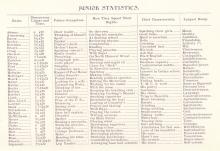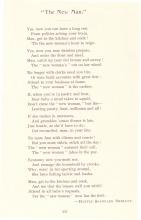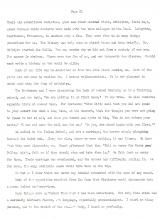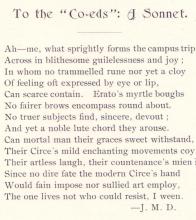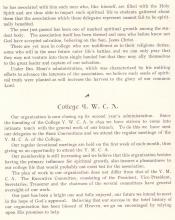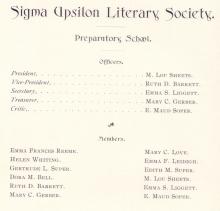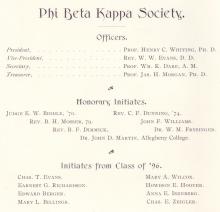Junior Class Pokes Fun at Fellow Co-ed
The Microcosm pokes fun at the Junior Class by publishing their "statistics." By discussing each member's "future occupation," "how they spend their nights," and "chief characteristics," they make fun of each individual. One of the main targets was, of course, the only class co-ed, Marie E. Lloyd. Her "statistics" state that her future occupation was to be President of the United States, obviously making fun of her female status in society. Marie also apparently spends her night "entertaining the boys" with her chief characteristic being "heart breaking."

